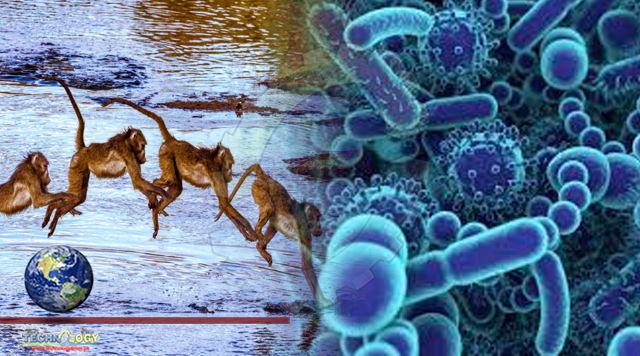The team found that several of the microbiome traits that are heritable in baboons are also heritable in humans. Elizabeth Archie is a principal investigator on the study and a professor in the Department of Biological Sciences at the University of Notre Dame.

By Chrissy Sexton
In a new study focused on baboons in Kenya’s Amboseli National Park, experts have discovered that the gut microbiome is shaped by genetics much more than what was previously realized. The research was based on the analysis of 16,000 gut bacteria profiles collected from the baboons over 14 years.
The team found that several of the microbiome traits that are heritable in baboons are also heritable in humans. Elizabeth Archie is a principal investigator on the study and a professor in the Department of Biological Sciences at the University of Notre Dame.
“The environment plays a bigger role in shaping the microbiome than your genes, but what this study does is move us away from the idea that genes play very little role in the microbiome to the idea that genes play a pervasive, if small, role,” said Professor Archie.
Our gut microbiome serves many important functions related to the body’s immune defenses. The bacteria that make up the gut microbiome primarily influenced by our lifestyle, such as what we eat, but the researchers have found a larger genetic role than expected.
The researchers analyzed fecal samples from 585 wild Amboseli baboons. The team found that 97 percent of microbiome traits, including overall diversity, were significantly heritable.
“This really suggests that in human work, part of the reason researchers haven’t found that heritability is because in humans they don’t have a decade and half of fecal samples in the freezer, and they don’t have all the initial host (individual) information they need to tease these details out,” said Professor Archie.
The experts found evidence that environmental factors influence trait heritability in the gut microbiome.
For example, microbiome heritability was typically 48 percent higher in the dry season compared to the wet season – which may be explained by the fact that baboons have a more diverse diet during the rainy season.
According to the researchers, knowing that genes in the gut microbiome are heritable opens the door to identifying microbes that are shaped by genetics. Ultimately, therapies could be tailored for people based on the genetic makeup of their gutmicrobiome.
Originally published at Earth.com